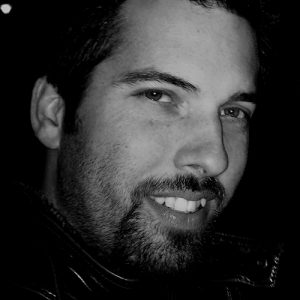
The decision to choose the right college or university, let alone a program of study that you actually want to do for the rest of your life, is a very tough decision…especially now as the young adults entering this portion of life are only 17 years old. How do you know what you want to do/be for the rest of your life at 17?!?! Actually, for some, they already know from well before then, for others, it’s a much longer journey.
I was lucky enough to be one of those that, more or less, knew what they wanted to do. In high school, I was always the one to help set up and run the sound and lights for the variety of events taking place at my school. If I went to a concert, I spent more time looking at all the buttons on the consoles, the lighting, the speakers, the rigging, much more than what was actually being done onstage. So for me when it came time to make a choice about my post-secondary education, I really wanted to work in the entertainment industry but had no idea where, or even that, you could go to school to learn about it. So, I applied to Architectural Design, Accounting, Aviation, and a few more programs that had nothing to do with Entertainment.
Accepted to them all, I still wanted the entertainment industry. But where? How? I made appointments to tour several recording arts programs as this was the only place I knew of that had anything to do with learning about the industry. I toured probably 4 different facilities and I just couldn’t get excited about it. Yes, the facilities and equipment were amazing, but I couldn’t picture myself sitting in one place (the studio) forever.
At the eleventh hour, I found a theatre production program – conveniently located at my local college. I applied, was accepted, and began my journey. My family didn’t understand the decision, and although they didn’t try to stop me, they also didn’t really see where it would take me. I’m happy to say that I have had a very rewarding career. I’ve met a lot of great people, both on and off stage, forged great friendships, and still continue to learn on a daily basis.
Now, as Production Manager at St. Clair College’s Entertainment Technology Program, I get to help guide the up and coming technicians (professionals in training, I like to call them) in finding and growing their love of the entertainment world.
In my position, I’ve come across a lot of students. They usually fall into three categories:
1. Knew what course they wanted to take.
2. Didn’t know what course they wanted to take, but the Entertainment Technology Program sounded like fun.
3. Their parents said they had to take something.
As with most programs, the students from group one often are very successful and have the drive and passion needed to work in entertainment. Unfortunately, the ones in the other two groups will often either fall out early in the program, or will complete it but never really pursue a career. Every so often, however, you get ones that belonged to group two and/or three and they surprise you. They have a great attitude, work ethic, and even though you might need to work with them a little closer, they are often times much more valuable to have on the crew than someone with more experience who is a pain to have around. Working with students (I mean professionals in training), was never something I pictured myself doing, but it has been a great and rewarding experience.
For the young, and sometimes older, adults who are looking to get into an education in entertainment, please consider the following:
Unfortunately, most guidance counsellors at the high schools do not even know that production programs even exist. Some do, but the large majority don’t, so please take the time and responsibility to research and investigate the variety of production programs out there.
With the entertainment industry growing larger and more technically advanced, more colleges and universities are offering production programs. Technical Theatre Production, Entertainment Technology, Entertainment Engineering, Event Technology; the choices are now becoming more varied. Take the time to really dig in and find out what each program is offering. If you don’t want to do theatre, then perhaps lean more towards the Entertainment Technology, or Entertainment Engineering programs. These will likely suit you better. If your interest is theatre, then any of the above would treat you well.
When you’ve narrowed down your list of program choices, please please please make arrangements for a tour. There are a lot of factors that go into choosing which college or university to attend (cost of tuition, cost of living, etc…); by taking a tour, you can see the facilities you’ll be learning and working in, and the type, age, quality and variety of equipment the program uses. Take the opportunity to talk to some of the faculty (who are they, what is their background), and I highly recommend you request to speak to a couple of current students. Also, do not automatically assume that you need to choose a program in a major market, some of the best overall programs may just be located in some smaller cities.
Find out how many events or productions you’ll get the chance to work on. If you’re applying to a theatre production program, find out how much live theatre you’ll get to do. How many different venues will you get to work in? In my program, on an annual basis, as part of the curriculum, we expose our students to a variety of events. From theatre to concerts to live wrestling, we are trying to expose our learners to a variety of event types and how they can apply the use of the technology they are learning about in the classroom to these events.
See if the programs you are looking at have any internship opportunities. Many of these programs do. I know that some programs have internship opportunities with Dragone Entertainment, Cirque du Soleil, some with their local arenas or performance venues where the students will get to work as local crew on events. These are all opportunities to expand your learning in ways that you would never be able to in the classroom. Take full advantage of these opportunities. If they cost you money, figure out how to come up with the money…trust me when I tell you that the equipment, knowledge, experience and contacts you will make far outweigh the potential costs. In fact, these opportunities should form part of the basis for choosing the right program for you.
I’m pretty sure that any fellow faculty people and industry professionals will all say the same thing. Whether you are a seasoned technician with decades of experience behind you, or a brand new up and coming technician, the person you work (or learn) next to, may just be the next person looking to hire. You also never know who is watching you.
Finally, have a passion for what you do. The entertainment industry is fun, exciting, offers a multitude of experiences, but it is also a lot of work.
Be aware that most of the time you’ll have to be working while everyone else goes out to play. Our hours are never the same. You may never get to see the sunlight on a given day as you spend the whole day in a theatre or arena. But if you love it, it will love you back.
Also by Dan Rehel:
Travel Nightmares: Canada To China



Dan Rehel graduated from Cambrian College in Sudbury, Ontario, Canada from Theatre Arts Technical Production and started working in the entertainment industry as a Scenic Carpenter, where he built many large productions including Chicago, The Sound of Music, British Invasion, Footloose and Miss Saigon. Dan has also Production Managed many corporate events for the likes of Microsoft, The White House, General Motors and Ford. Dan holds a Canadian Pyrotechnics license and has produced pyrotechnic events for the Detroit Pistons, Cleveland Cavaliers, Detroit Lions, and the University of Kentucky. Throughout his career, he has always found his niche in live sound. His skill and experience over the years has allowed him to work with international artists such as Big & Rich, LeAnn Rimes, Tom Jones, Larry the Cable Guy, Hall & Oates, Def Leppard and Nickelback. Since 2008, Dan has been working at St. Clair College in Windsor, Ontario, Canada as Production Manager for their Entertainment Technology program. In 2009, Dan started his own production company, Atlas Productions (Ontario) Inc., which provides production, design, installation and consultation services to local and international clientele. A believer in the concept of ‘never stop learning’, Dan recently travelled to Macau, China, participating in a multi-week observation period learning about the equipment and technology used within the City of Dreams’ "House of Dancing Water", and is always looking for new and different ways to expand his experience and knowledge in the industry.
Read Full Profile© 2021 TheatreArtLife. All rights reserved.

Thank you so much for reading, but you have now reached your free article limit for this month.
Our contributors are currently writing more articles for you to enjoy.
To keep reading, all you have to do is become a subscriber and then you can read unlimited articles anytime.
Your investment will help us continue to ignite connections across the globe in live entertainment and build this community for industry professionals.